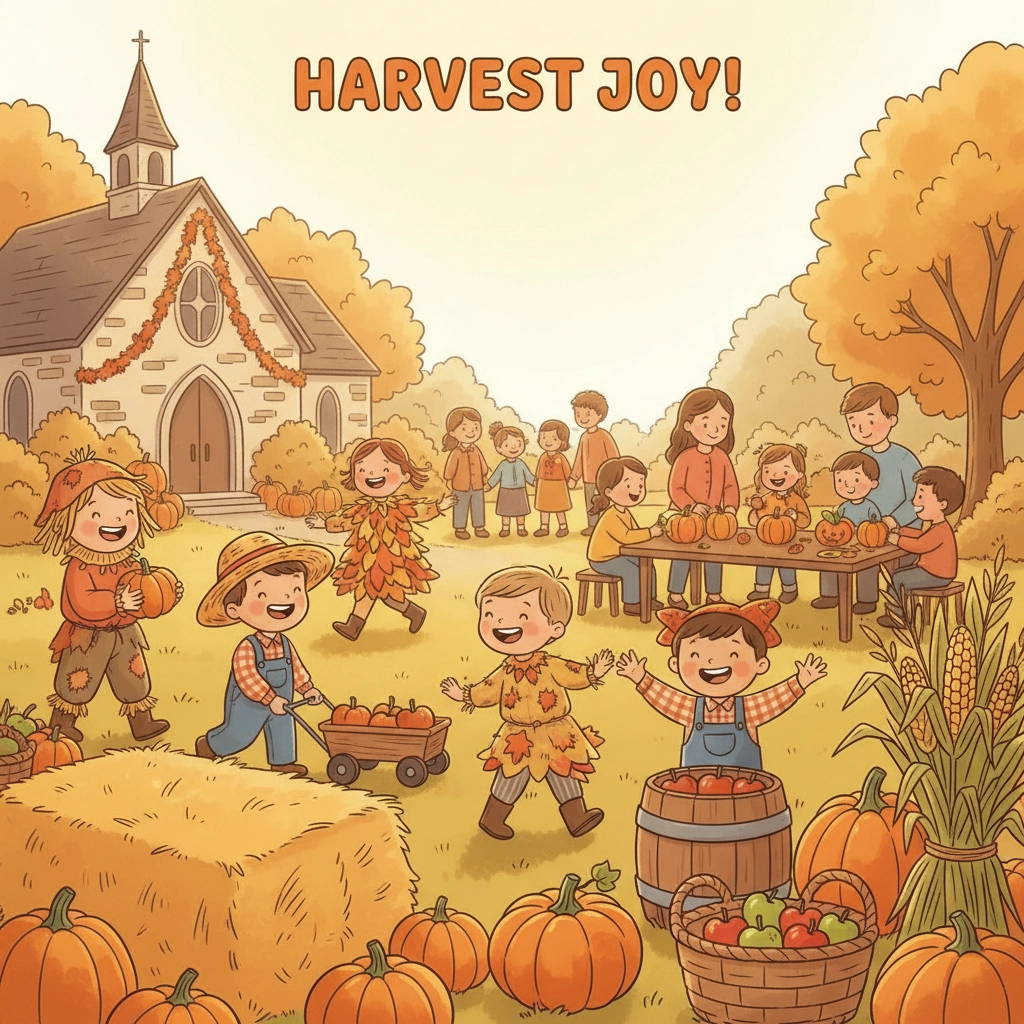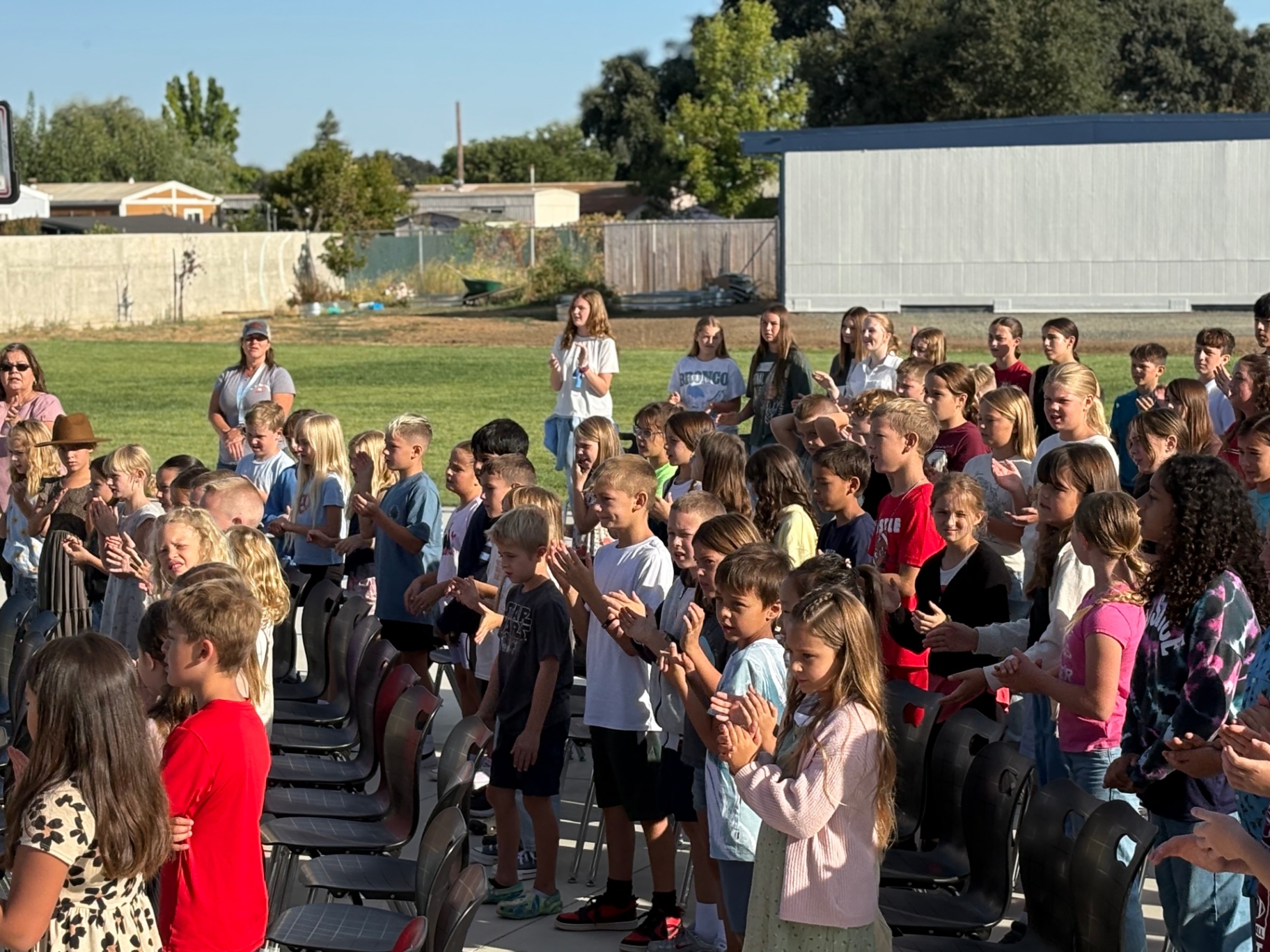Harvest Celebration vs. Halloween: What's the Difference and Why Does It Matter for Christian Families?
- Timothy Barnes
- Oct 27, 2025
- 5 min read
Are you wondering how to navigate October traditions while staying true to your Christian values? As fall approaches and decorations fill the stores, many Christian families find themselves asking tough questions about Halloween and whether there's a better way to celebrate the season. At KCA Eagles, we understand this dilemma because we've walked alongside countless families seeking to honor God while creating meaningful memories for their children.
The good news? You don't have to choose between fun fall festivities and your faith. Harvest Celebrations offer a beautiful alternative that captures all the joy of the season while aligning with Christian principles.
The Historical Roots: Where Halloween Really Came From
Understanding the difference between Harvest Celebrations and Halloween starts with knowing where Halloween originated. Halloween traces its roots back to Samhain, an ancient Gaelic festival that marked the end of the harvest season around October 31st. The Celts believed this was when the boundary between the living world and the spirit realm was thinnest, allowing ghosts to return and potentially damage crops (Santino, Jack. The Hallowed Eve: Dimensions of Culture in a Calendar Festival. University Press of Kentucky, 1994).
To protect themselves, people would dress in costumes to disguise their identities and light bonfires, burning crops and animal bones as offerings to Celtic deities. Over centuries, this pagan harvest festival evolved into modern Halloween, gradually moving away from its agricultural origins toward darker supernatural themes focused on horror, witchcraft, and occult imagery.
While Halloween retains its timing around harvest season, it has largely abandoned the gratitude and community aspects that originally defined fall celebrations.
What Makes Harvest Celebrations Different?
Harvest Celebrations represent a intentional return to the positive aspects of fall festivities without the spiritual conflicts. These events, often hosted by Christian schools and churches, create space for costumes, games, and community fellowship while maintaining a focus on God's provision and blessings.

Rather than emphasizing supernatural horror or occult themes, Harvest Celebrations center around:
Gratitude for God's provision through the harvest season
Community fellowship among families and believers
Celebrating creation and the beauty of autumn
Teaching stewardship of God's gifts to children
Creating safe, faith-affirming environments for family fun
The atmosphere shifts from darkness and fear to light and thanksgiving, allowing Christian families to participate in seasonal traditions without compromising their beliefs.
Key Differences That Matter
The fundamental distinction lies in spiritual emphasis and underlying worldview. While both celebrations may include costumes and autumn activities, they carry vastly different messages about reality and values.
Halloween's Focus:
Supernatural horror and occult imagery
Celebration of darkness, death, and fear
Origins rooted in pagan spiritual practices
Emphasis on getting rather than giving
Individual costume competition over community
Harvest Celebration's Focus:
God's goodness and faithful provision
Celebration of light, life, and hope
Origins rooted in biblical thanksgiving principles
Emphasis on gratitude and sharing blessings
Community fellowship over individual recognition
For Christian families committed to faith-based education, these differences matter because they reflect deeper theological convictions about spiritual reality and what deserves celebration.
Why This Decision Impacts Your Family's Faith Journey
Scripture provides clear guidance about engaging with occult practices. The Old Testament repeatedly warns against witchcraft and divination, while New Testament passages demonstrate that occultism and Christianity don't mix. In Acts, new converts publicly burned their magic books, recognizing the incompatibility between their old practices and their new faith (Acts 19:18-20).
This doesn't mean every Christian family must approach October traditions identically. Within biblical boundaries, families exercise Christian freedom while considering several important factors:
Conscience and Conviction: Some families avoid Halloween entirely, viewing any participation as spiritually compromising. Others allow selective participation with innocent costumes while avoiding darker themes. Still others use Halloween as an evangelistic opportunity to share Christ's love with neighbors.
Impact on Others: Romans 14 reminds us to consider how our choices affect fellow believers, especially newer Christians who might be confused or caused to stumble by our participation.
Teaching Moments: Whatever approach families choose, October provides opportunities to discuss spiritual discernment, cultural engagement, and the importance of making decisions based on biblical principles rather than cultural pressure.

How Christian Schools Navigate These Decisions
Christian private schools like KCA face unique opportunities during October to reinforce the values families are instilling at home. When schools host Harvest Celebrations instead of Halloween parties, they:
Demonstrate consistency between home and school values
Provide safe alternatives that don't require families to compromise beliefs
Teach gratitude through age-appropriate activities about God's provision
Build community among families who share similar convictions
Model thoughtful cultural engagement for students
This alignment between family values and educational environment strengthens character development and helps children understand that faith impacts every area of life, not just Sunday mornings.
At KCA , we believe education should support rather than undermine the spiritual formation happening at home. When Christian schools near me prioritize biblical worldview integration, families experience the peace of knowing their children's school experience reinforces rather than contradicts their family's faith journey.
Creating Meaningful Alternatives
Successful Harvest Celebrations don't just avoid problematic elements: they actively celebrate positive themes that build faith and community. Effective alternatives might include:
Community Activities:
Pumpkin decorating with biblical messages
Harvest-themed games emphasizing teamwork
Storytelling about God's faithfulness through seasons
Service projects collecting food for local families
Worship and prayer thanking God for His provision
Educational Opportunities:
Learning about different crops and God's design in creation
Understanding biblical imagery related to harvest and sowing
Exploring how different cultures celebrate God's provision
Developing gratitude practices that extend beyond October
These activities create positive memories while teaching children that fun and faith can beautifully coexist.
The Bigger Picture: Building Character Through Choices
The decision between Halloween and Harvest Celebrations represents something larger: how Christian families navigate cultural participation while maintaining biblical convictions. This process of thoughtful discernment builds crucial life skills in children who will face increasingly complex cultural decisions as they grow.
When families choose Harvest Celebrations, they're demonstrating that:
Faith influences practical decisions
Community matters more than individual preferences
Gratitude deserves celebration
Creative alternatives can be more fulfilling than cultural defaults
Standing for convictions doesn't mean missing out on joy
Christian values in education extend far beyond Bible class or chapel services. They encompass how schools approach every aspect of student life, including seasonal celebrations that either reinforce or undermine the character development happening at home.
Moving Forward with Confidence
As the time approaches, Christian families don't need to choose between boring alternatives and compromised convictions. Harvest Celebrations offer rich, meaningful traditions that honor God while creating lasting memories for children.
The key lies in intentionality: purposefully choosing celebrations that reflect your family's values rather than defaulting to cultural expectations. Whether your family participates in Harvest Celebrations, finds creative ways to redeem Halloween, or chooses different October traditions entirely, the goal remains building children's faith while fostering community with other believers.
At KCA Eagles, we're committed to supporting families navigating these decisions by providing educational environments where faith-based values guide every aspect of school life. When you're looking for Christian schools near me that understand the importance of aligning seasonal celebrations with biblical principles, you'll find a community ready to walk alongside your family's faith journey.
The choice between Harvest Celebrations and Halloween ultimately reflects your family's commitment to raising children who can thoughtfully engage culture while maintaining strong biblical convictions. Whatever path you choose, do so with confidence, knowing that God honors families who seek to glorify Him in every season of life.
Ready to learn more about how faith-based education can support your family's values year-round? Discover the difference a Christ-centered educational environment can make in your child's character development and academic growth.